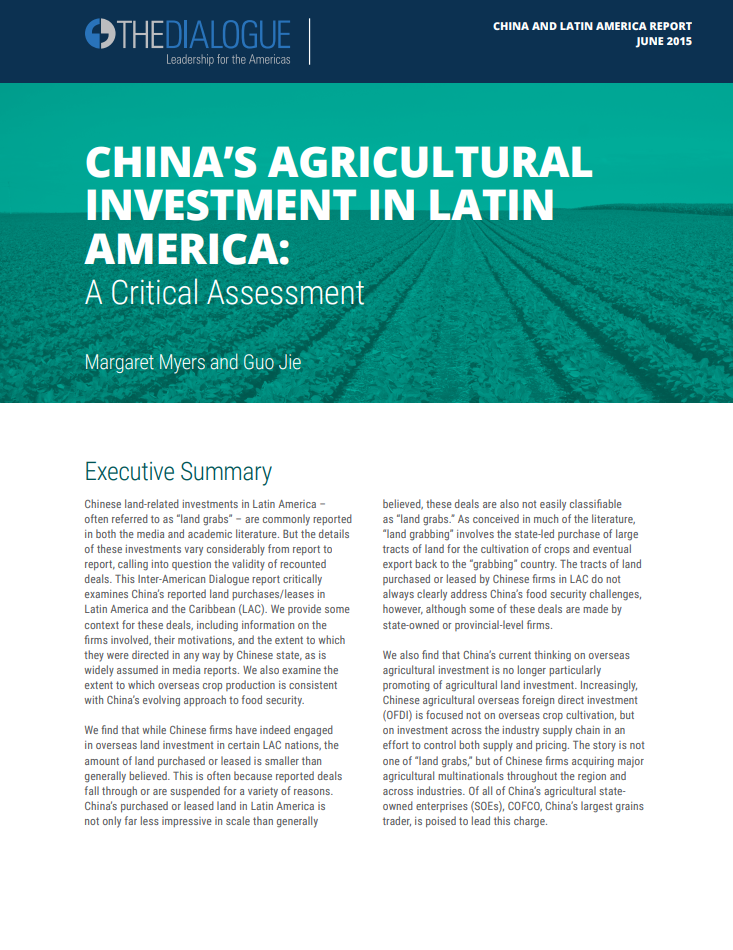The Politics Of Disaster Relief
After a 7.0 magnitude earthquake struck Haiti, the aftershock reached China in ways that few anticipated.The earthquake forced Chinese leaders to navigate the tricky politics of disaster relief.
Chinese land-related investments in Latin America – often referred to as “land grabs” – are commonly reported in both the media and academic literature. But the details of these investments vary considerably from report to report, calling into question the validity of recounted deals. This Inter-American Dialogue report critically examines China’s reported land purchases/leases in Latin America and the Caribbean (LAC).
We provide some context for these deals, including information on the firms involved, their motivations, and the extent to which they were directed in any way by Chinese state, as is widely assumed in media reports. We also examine the extent to which overseas crop production is consistent with China’s evolving approach to food security.
We find that while Chinese firms have indeed engaged in overseas land investment in certain LAC nations, the amount of land purchased or leased is smaller than generally believed. This is often because reported deals fall through or are suspended for a variety of reasons.
China’s purchased or leased land in Latin America is not only far less impressive in scale than generally believed, these deals are also not easily classifiable as “land grabs.” As conceived in much of the literature, “land grabbing” involves the state-led purchase of large tracks of land for the cultivation of crops and eventual export back to the “grabbing” country. The tracks of land purchased or leased by Chinese firms in LAC do not always clearly address China’s food security challenges, however, although some of these deals are made by state-owned or provincial-level firms.
We also find that China’s current thinking on overseas agricultural investment is no longer particularly promoting of agricultural land investment. Increasingly, Chinese agricultural overseas foreign direct investment (OFDI) is focused not on overseas crop cultivation, but on investment across the industry supply chain in an effort to control both supply and pricing.
The story is not one of “land grabs,” but of Chinese firms acquiring major agricultural multinationals throughout the region and across industries. Of all of China’s agricultural state-owned enterprises (SOEs), COFCO, China’s largest grains trader, is poised to lead this charge.
After a 7.0 magnitude earthquake struck Haiti, the aftershock reached China in ways that few anticipated.The earthquake forced Chinese leaders to navigate the tricky politics of disaster relief.
What should we expect from a newly powerful Brazil? Does the country have the capacity and leadership to be a central actor in addressing critical global and regional problems?
President Lula da Silva triumphantly announced that he and his Turkish counterpart had persuaded Iran to shift a major part of its uranium enrichment program overseas—an objective that had previously eluded the US and other world powers. Washington, however, was not applauding.
